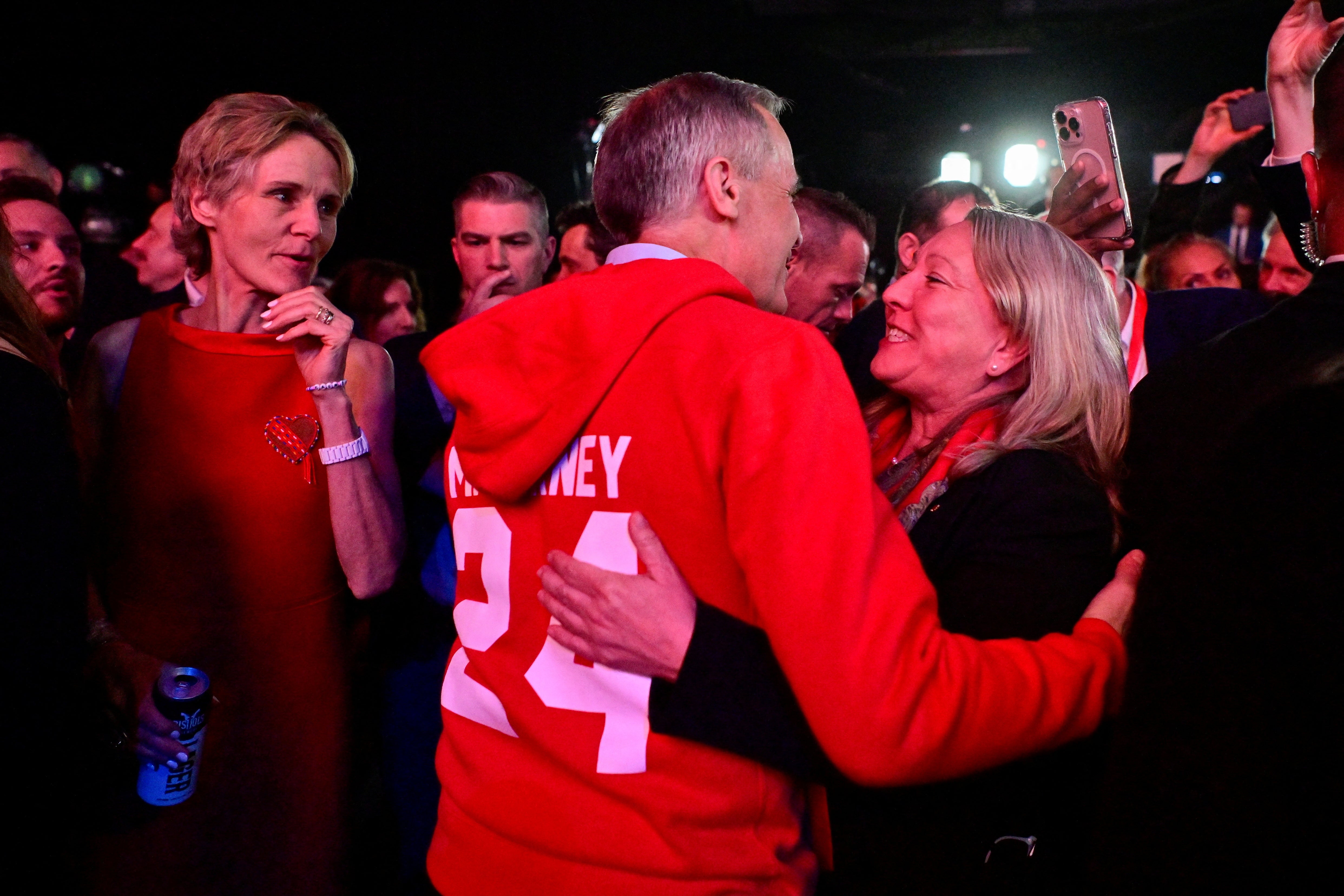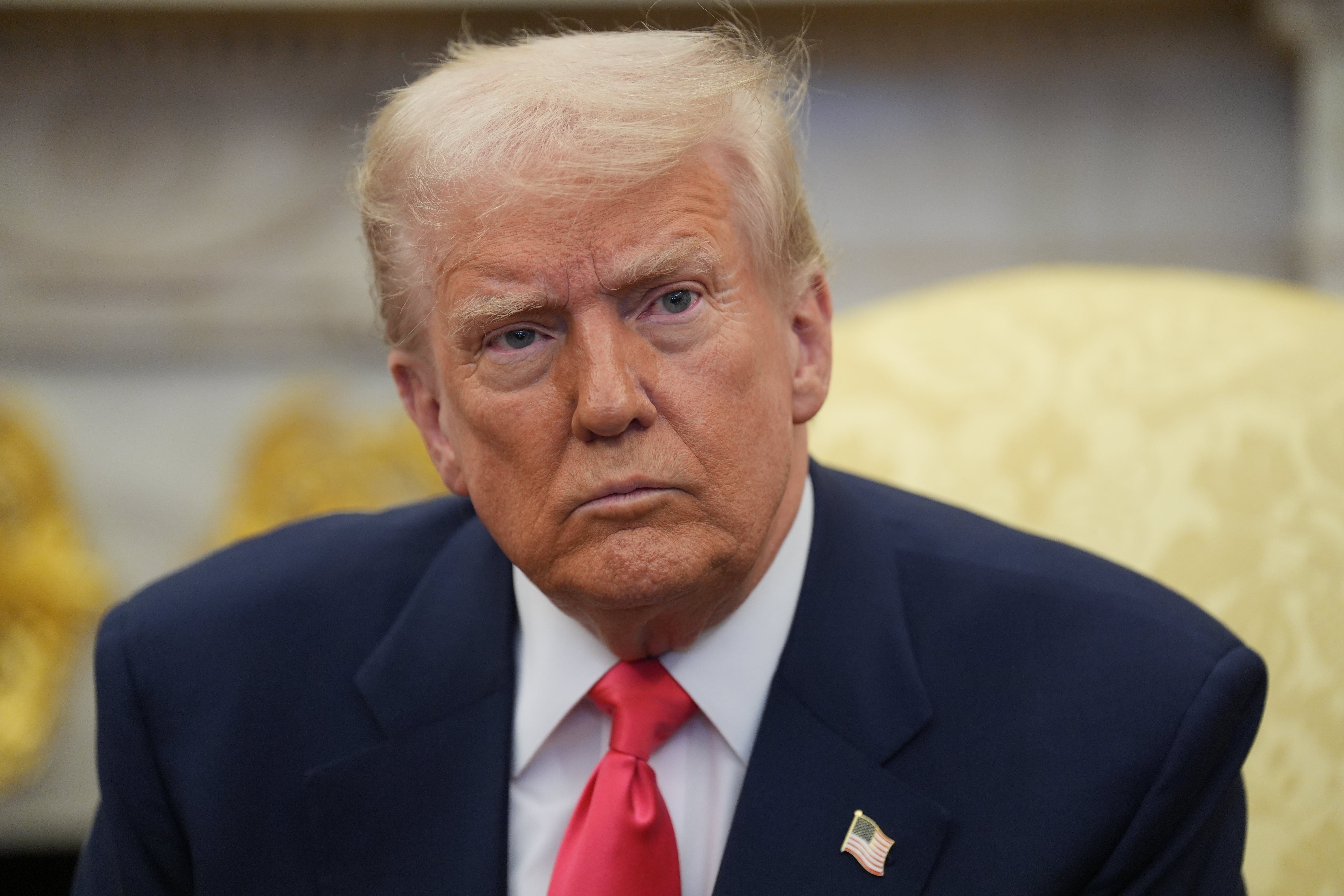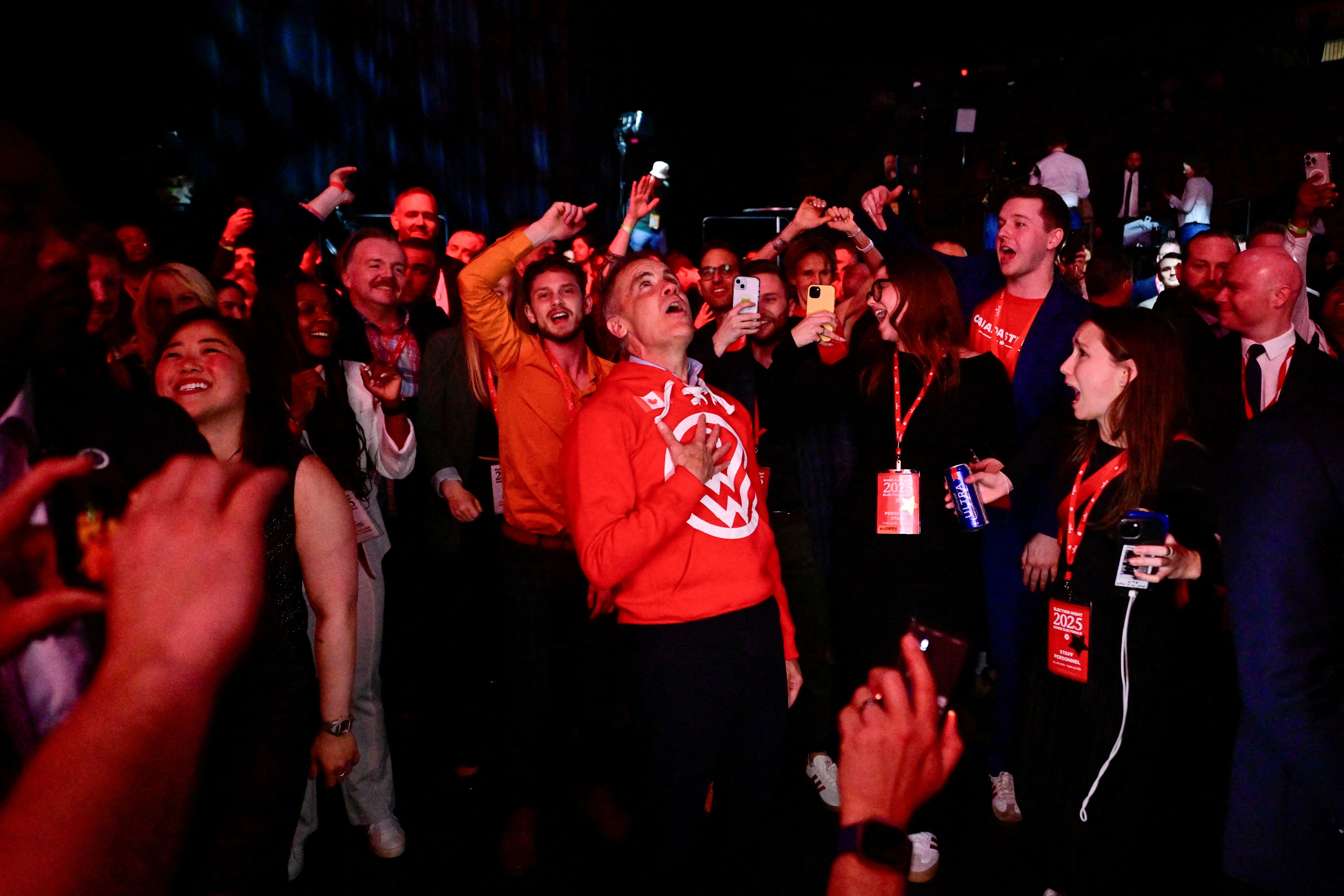Mark Carney’s Liberals win Canada’s crucial election and set to form minority government
Decision over whether to extend Liberal Party’s decade in power or hand control to opposition Conservatives became dominated by US president Donald Trump
Canadian prime minister Mark Carney's Liberals retained power in the country's crucial election on Monday and were set to form a minority government, according to reports.
By winning the federal election, Mr Carney’s Liberal Party secured a dramatic fourth-straight term amid rising nationalist sentiment sparked by US president Donald Trump’s threats to Canada’s economy and sovereignty.
In his victory speech, Mr Carney said he was “looking forward to delivering for Canadians”.
“Our old relationship with the United States, a relationship based on steadily increasing integration, is over,” Mr Carney told supporters in Ottawa.
“The system of open global trade anchored by the United States, a system that Canada has relied on since the Second World War, a system that, while not perfect, has helped deliver prosperity for our country for decades, is over.”
He added: “These are tragedies, but it’s also our new reality.”
“America wants our land, our resources, our water, our country. These are not idle threats. President Trump is trying to break us so America can own us. That will never ever happen.”
The full results are still coming in, but as of 6am in Ottawa on Tuesday the Liberals had won or were leading in 168 seats, compared to 144 for the Conservatives. At least 172 seats in the House of Commons are needed to form a majority. Minority governments in Canada rarely last longer than two-and-a-half years.

The Canadian Broadcasting Corp (CBC) projected a Liberal win but did not yet say if they expected a minority or majority government. The result, though, capped a notable comeback for the Liberals, who had been 20 points behind in the polls in January before Mr Trudeau announced he was quitting and Mr Trump started threatening tariffs and annexation.
Canadians were tasked with deciding on Monday whether to extend the Liberal Party's decade in power or hand control to the opposition Conservatives – but the election was also a referendum of sorts on someone who is not even Canadian: Donald Trump.
Mr Carney, 60, had asked for a strong mandate to help him handle Mr Trump's tariffs and annexation threat. The US president trolled Canadians on election day with a post on social media suggesting he was on the ballot and repeating that Canada should become the 51st state, incorrectly claiming that the US subsidises Canada. “It makes no sense unless Canada is a state!” Mr Trump posted.

Mr Trump’s actions angered Canadians, which fuelled a wave of nationalism that enabled the Liberals to shift the election narrative and secure yet another term in office.
“We were dead and buried in December. Now we are going to form a government,” David Lametti, a former Liberal justice minister, told broadcaster CTV.
“We have turned this around thanks to Mark,” he said.
Mr Trump, in a social media post on Monday, reiterated his call for Canada to become the 51st state. “Good luck to the Great people of Canada,” he said. “Elect the man who has the strength and wisdom to cut your taxes in half, increase your military power, for free, to the highest level in the World, have your Car, Steel, Aluminum, Lumber, Energy, and all other businesses, QUADRUPLE in size, WITH ZERO TARIFFS OR TAXES, if Canada becomes the cherished 51st. State of the United States of America. No more artificially drawn line from many years ago.”

Mr Poilievre, who campaigned with Trump-like bravado, responded to the US president with a post of his own, saying: “President Trump, stay out of our election. The only people who will decide the future of Canada are Canadians at the ballot box. Canada will always be proud, sovereign and independent and we will NEVER be the 51st state.”
Mr Trump’s threats to Canada’s economy and sovereignty has infuriated many Canadians, leading many to cancel US vacations, refuse to buy American goods and possibly even vote early. A record 7.3 million Canadians cast ballots before election day.
A consequent surge in nationalism put Mr Poilievre and the Conservative Party on the back foot after they appeared headed for an easy victory months ago.
On Monday, Mr Poilievre implored voters to “Get out to vote – for a change”.

In his concession speech, Mr Poilievre pledged to continue fighting for Canadians. “We are cognisant of the fact that we didn’t get over the finish line yet,” he told supporters in Ottawa. “We know that change is needed, but change is hard to come by. It takes time. It takes work. And that’s why we have to learn the lessons of tonight — so that we can have an even better result the next time Canadians decide the future of the country.”
Mr Poilievre had hoped to make the election a referendum on former prime minister Justin Trudeau, whose popularity declined toward the end of his decade in power as food and housing prices rose and immigration surged. But then Mr Trump became the dominant issue as he slapped 25 per cent tariffs on Canada and repeatedly called for the country to become “the 51st state”.
Historian Robert Bothwell said Poilievre tapped into the “same sense of grievance” as Mr Trump, but that this approach ultimately backfired. “The Liberals ought to pay him,” Bothwell said, referring to the US president. “Trump talking is not good for the Conservatives.”

Polls opened across Canada as the country also grappled with the aftermath of a fatal car ramming attack on Saturday in Vancouver. The tragedy prompted the suspension of campaigning for several hours. Police ruled out terrorism and said the suspect is a local man with a history of mental health issues.
As winners, the Liberals are now faced with a litany of challenges. Canada has been dealing with a cost-of-living crisis for some time. And more than 75 per cent of its exports go to the US, so Mr Trump's threat to impose sweeping tariffs and his desire to get North American automakers to move Canada's production south could severely damage the Canadian economy.

Mr Carney, during his campaign, promised that revenue from counter-tariffs on US goods would support Canadian workers impacted by the trade war. He also committed to maintaining dental care, introducing a middle-class tax cut, returning immigration to sustainable levels, and increasing funding for the Canadian Broadcasting Corporation.
On Monday, he said: “Over my long career, I have made many mistakes and I will make more. But I commit to admitting them openly, to correcting them quickly and to always learn from them.”
Mr Carney ended his remarks on Monday with a renewed call for unity, reminding Canadians of the ongoing challenges in relations with the US. “We will build an independent future for our great country,” he said to the crowd. “Vive le Canada. Thank you very much, merci beaucoup.”
Meanwhile, New Democratic Party (NDP) leader Jagmeet Singh conceded defeat in his British Columbia seat and announced he will step down as leader of the party. According to CBC, the NDP was poised to lose more than half of its seats from before the election.
Join our commenting forum
Join thought-provoking conversations, follow other Independent readers and see their replies
Comments